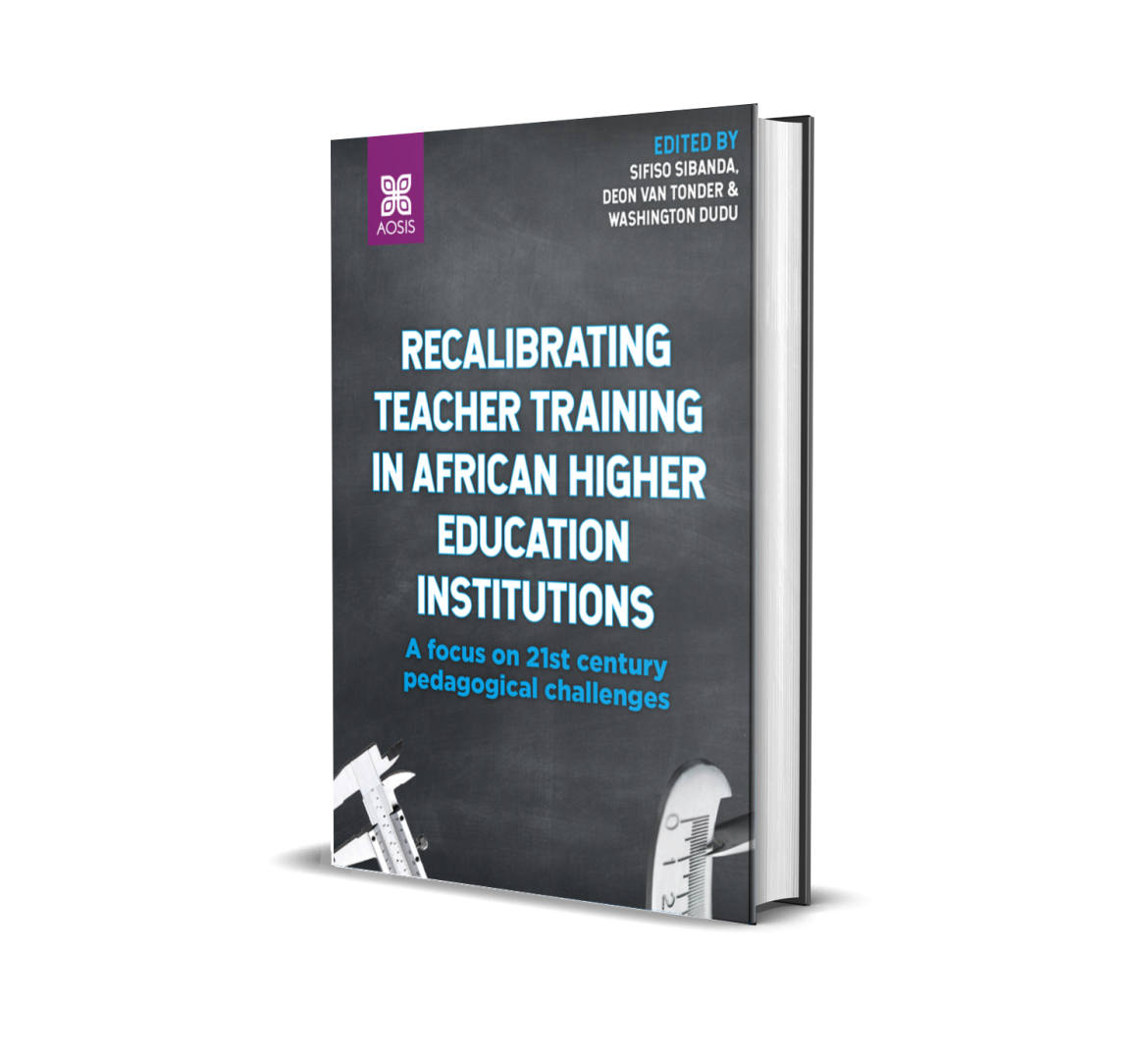Recalibrating teacher training in African higher education institutions: A focus on 21st-century pedagogical challenges is published by AOSIS Scholarly Books.
Recalibrating teacher training in African higher education institutions critically examines the role of governments in promoting parity during and in post-pandemic education. This comes from the realisation that the pandemic has deepened the crisis by depleting the meagre resources that African countries might have devoted to ‘normative educational practices’ where those on the margins would have been pushed further behind while the privileged would have been further initiated into the cultural and capital flows of private schools and historically research-intensive institutions of higher learning.
This has far-reaching implications for the education of underprivileged citizens, and education, particularly modes and modalities of delivery, has to be reimagined to subvert the challenges wrought by the pandemic. This book significantly bridges the gap between the pre-and post-COVID-19 pandemic pedagogical practices and the erstwhile modalities that have been resilient over time. The book focuses on ways to stave off pedagogical challenges that face countries as the global pandemic makes its mark.
Copyright (c) 2022 Sifiso Sibanda, Gideon Van Tonder, Washington T. Dudu (Volume editor)
Each chapter in this book offers insights into how a pandemic can dictate a change in pedagogy. After reflecting on the destruction that a pandemic can cause to an educational system, the authors inspire hope in the reader by demonstrating, through research, how life in the classroom can still continue, but under a new normal. The authors show through research-based evidence the resilience of the human soul in the face of calamities by adopting forward-looking educational pedagogy. This book’s chapters offer practical research-based pedagogy that demonstrates humanity’s spirit of survival against the onslaught of hostile and ever-changing situations and environments.
Prof. Vitalis Nyawaranda, Department of Languages and Arts Education, Faculty of Education, University of Zimbabwe, Harare, Zimbabwe

